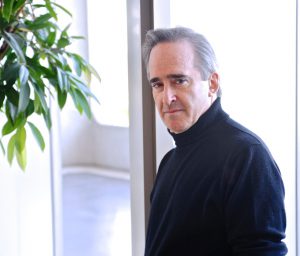“Who shall absolve the foulness of their fate… Those doomed, conscripted, unvictorious ones?”… Siegfried Sassoon
After 1945, those who performed, wrote or taught classical music worked in a culture scarred by omissions. These were not of their making, but were part of the legacy of atrocities committed by Nazi Germany. With its racist ideology and systematic suppression particularly, although not exclusively, of Jewish musicians, artists and writers, the Third Reich silenced two generations of composers and, with them, an entire musical heritage. Many, who perished in concentration camps, and others, whose freedom and productivity were curtailed, were fated to be forgotten after the war. Their music seemed to have passed with them, lost in endless silence.
However, more lost music has survived than was at first thought. It has taken decades of dedicated work to recover and publish it. We must now mitigate a great injustice by working to revive the music of those whose only “fault” was that they were Jewish, or that they were opposed to, or deemed offensive, by an authoritarian regime.
But that is not the only reason to restore these works. I believe that the spirit of this “lost generation” now needs to be heard. The creativity of the first half of the twentieth century is far richer than we think. Alongside Stravinsky, Strauss and other major and more fortunate figures, the varied voices of composers from Berlin, Vienna, Prague and Budapest, whether Jewish, dissident or immigrant, reveal much about the musical ferment of their time. Their music, I believe, is accessible and relevant. Further, our own American heritage owes an enormous debt to those who emigrated to Hollywood and Broadway, bringing their distinctive personalities with them, and creating a style that has since evolved into a distinctly American one.
The cliché that “there are no lost masterpieces” reveals our own ignorance. Entire civilizations, along with their masterpieces, have been destroyed by war since the beginning of human history. Various forms of censorship have repeatedly affected artists and works, and continue to do so.
The suppression of these composers and musicians caused the greatest single rupture in what had been a continuous seamless transmittal of German classical music. This centuries…old tradition, dating from before Johann Sebastian Bach, was passed on from one generation to the next. It was nourished by the free expression of an often contentious creative exchange between conservative traditional artistic expression and competing currents of innovation and iconoclasm. The policies of the Third Reich destroyed the environment in which this exchange could flourish, murdering an entire generation of its greatest talents, uprooting an entire garden, with its creative polemics and dialectics, forcing those who survived to scatter all over the world, where there were no comparable artistic milieus in which to live and create. This immense self…destructive act seriously damaged one of Germany’s most cherished traditions, killed its caretakers, and buried a “lost generation” along with its spirit.
There are three aspects to be taken into consideration when approaching this music: moral, historical and artistic. Undoing injustice, when one can, is a moral mandate for all citizens of a civilized world. We cannot restore to these composers their lost lives. We can, however, return the gift that would mean more to them than any other: to play their music.
Our perspectives on the history of twentieth…century classical music are incomplete because an enormous quantity of works has remained unplayed, and the lives of its composers largely ignored. History is not only made by its “big names,” its warrior kings, dictators and most famous artists, but also by the collective action of all of those artists who lived in a given era. The twentieth century needs to be re…scrutinized after we acquaint ourselves with the voluminous music cast out by the Nazi suppression.
Neither moral nor historical considerations would be reason enough for revival were it not for the artistic quality of what was lost. This cannot be judged by a single hearing of tokenistic or uncommitted performances. Judgments, if indeed they must be made, can only be made after those performing and listening over the course of years have given the spirit of that era sufficient time to be fully digested.
I now perform this music regularly, in the hope that it will find its place in the standard repertoire. I devote myself to programming works by this group of composers wherever possible. The list of names is long: Alexander Zemlinksy, Viktor Ullmann, Pavel Haas, Bohuslav Martinu, Erich Korngold, Karl…Amadeus Hartmann, Erwin Schulhoff, Franz Schreker, Walter Braunfels, Ernest Krenek, Hanns Eisler, Erich Zeisl and Kurt Weill, to name just a few.
By keeping alive their music and that of other victims of totalitarianism, we deny those past regimes a posthumous victory. The revival of this music can serve as a reminder for us to resist any contemporary or future impulse to define artistic standards on the basis of racist, political, sectarian or exclusionary ideologies.
The answer to Sassoon’s question is: it is we, now, who can begin to “absolve the foulness of their fate.”
